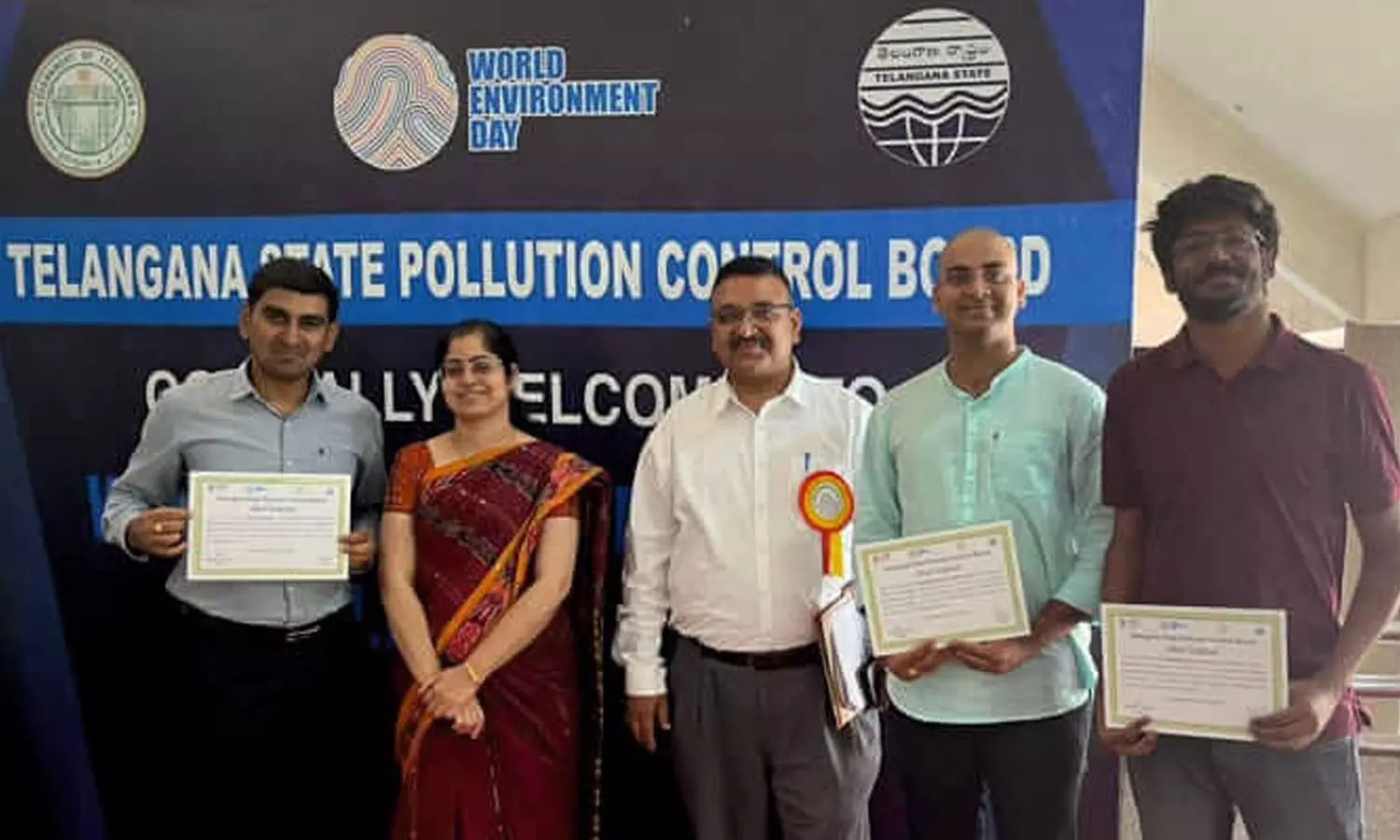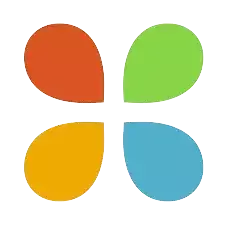IIIT Hyderabad students win Telangana pollution control board's hackathon
TSPCB recently hosted a 5-day 'Eco-Champions Hackathon' for graduates and undergrads, requesting ideas and solutions to problems focusing on two key topics

HYDERABAD: M. Rajesh, M. Satish Kumar, and T. Thomas David, 'Eco-Champions' of IIIT Hyderabad, took home a monetary reward of 50,000 on World Environment Day for their low-cost IoT-based sensor for effective water management.
The Telangana State Pollution Control Board (TSPCB) has been actively involved in a variety of related measures such as phasing out single-use plastics, laying out guidelines for effective waste disposal (e-waste, biomedical waste, and so on), monitoring effluents, and so on, with the goal of achieving simultaneous economic growth and environmental management for an improved quality of life in Telangana.
To raise awareness of 'green' challenges, the Board recently hosted a 5-day 'Eco-Champions Hackathon' for graduates and undergrads, requesting ideas and solutions to problems focusing on two key topics. While theme one focused on reducing single-use plastics, theme two was all about conserving water and lowering total usage.
PhD students Rajesh Muddu and Satish Mummidivarapu from the Lab of Spatial Informatics (LSI) collaborated with Research Scholar Thomas David from the Signal Processing and Communication Research Centre (SPCRC) to develop an effective water management solution.
AI-based solution
Out of a total 314 teams that had registered for the hackathon, the IIITH team was one of the 25 shortlisted for the finals in Theme Two. TSPCB invited ideas related to the theme such as low cost technologies for treatment of sewage water and reuse, cost-effective community rain water harvesting technologies, innovative, energy efficient and economical solutions for reducing fresh water demand in agricultural, industrial and other water intensive sectors, policy or regulatory or legal intervention for efficient water management and effective control of water exploitation and many others. Rajesh, the team lead and others chose to develop a low-cost IoT sensor in response to the call for ‘Internet of Things (IoT) and Artificial Intelligence (AI) based device for effective water management in cities or large-scale industries.
Team Efforts
As students of LSI, Rajesh and Satish were actively involved in a DST-funded project where they are currently developing a DSS (Decision Support System) tool for real time water quality monitoring of the Bhadra river.
“While the research project deals with real-time monitoring of water quality, for the hackathon we decided to focus on monitoring water quantity,” emphasised Satish. With water flow consumption and leakage detection being one of the focus areas of research at the Smart City Living Lab, expertise related to sensors was brought in by Thomas David, an Electronics and Communications Engineering student.
Ably mentored by Prof. KS Rajan, Prof. Rehana Shaik and Prof. Sachin Chaudhari, the formidable team decided to develop and deploy affordable sensors that could not only measure water flow rates to optimise usage but also monitor the water levels in tanks to flag leaks if any, thereby reducing wastage. “We integrated the sensors with an Arduino-based platform, enabling real-time monitoring and data collection. The collected data is wirelessly transmitted to a central server or mobile app, allowing users to track their water consumption patterns, identify inefficiencies, and make informed decisions for effective water management,” explains Rajesh.
Superiority Of The Solution
Current water tank monitoring methods involve the use of floating balls or float switches that complete a circuit once a certain water level is reached. And then there are capacitive sensor-based technology sensors that complete a circuit upon contact with water. None of these solutions are IoT-based and the latter are in fact prone to corrosion since they are not water proof.
The IIITH team’s solution was based on ultrasonic sensors that can gauge the exact volume of water in the tank without relying on indexes. Similarly, water consumption was typically measured with the help of digital meters. However, these are expensive and rely on ultrasonic methods. The team proposed the use of flow meters which when used in conjunction with hall effect sensors are cheap and easily programmable for calibration whenever required.
The data-driven approach which leverages digital innovation and technology caught the eye of the jury because it enables remote access to consumption data, facilitates proactive leak detection and supports sustainable water resource management. What made it come out on top though was its use of inexpensive parts making it a scalable solution that can be adapted to various settings thereby scoring on widespread implementation and impact too.



